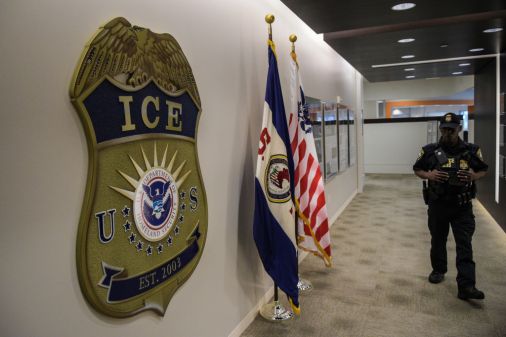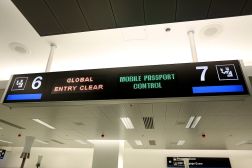AT&T finally signs up for Einstein 3A
One of the largest providers of telecom services for the U.S. government has finally signed on to allow the Department of Homeland Security to put Einstein on its network connections attached to federal civilian agencies.
In a Wednesday blog post, AT&T says it recently signed a contract with DHS to put Einstein 3 Accelerated, the system used to defend and protect federal civilian executive branch agencies from cyber attacks, on its federal networks. The agency’s efforts to integrate Einstein into the AT&T network had been stalled for more than a year due to the company’s request for liability protections. AT&T did not clarify whether it had obtained the the liability protection it sought or abandoned its demand for it.
Two other telecom companies that service the federal civilian government — Verizon and CenturyLink — had previously signed on to adopt Einstein. With AT&T now on board, DHS can move toward using Einstein to cover 100 percent of civilian agency networks. That goal was set forth by U.S. Chief Information Officer Tony Scott as part of this summer’s cybersecurity sprint in the wake of massive data breaches at the Office of Personnel Management.
Last week at a Chertoff Group event, a DHS cybersecurity official, retired Brig. Gen. Greg Touhill, said that Einstein was going to cover 80 percent of federal networks within the next year.
It’s unknown whether that delayed schedule can be directly attributed to the hold-up of the AT&T deal, but at the Chertoff event, a former DHS official who spent six years in the cybersecurity directorate said agencies and ISPs were extremely hesitant to let DHS put Einstein on their network.
“It took years to deploy Einstein because departments and agencies would say, ‘I don’t know if I can put DHS-procured technology on my network,'” said Ryan Gillis, who is now vice president of cybersecurity strategy and global policy at Palo Alto Networks. “In the meantime, [agencies] lacked IDS [intrusion detection system] capabilities. Now with Einstein 3A, it’s been a big conversation with the ISPs, and then the same conversation with agencies about ‘Can I put these protective technologies here?’ All of that leads to massive delays and jeopardizes the operation of networks.”
The DHS press office did not respond to a request to confirm the story or comment on it.
There has been much movement from industry related to Einstein in the past few weeks. In addition to the AT&T deal, Raytheon was awarded a five-year contract for support of the National Protection and Programs Directorate — the office which oversees cybersecurity at DHS — that could total $1 billion before it’s complete.






